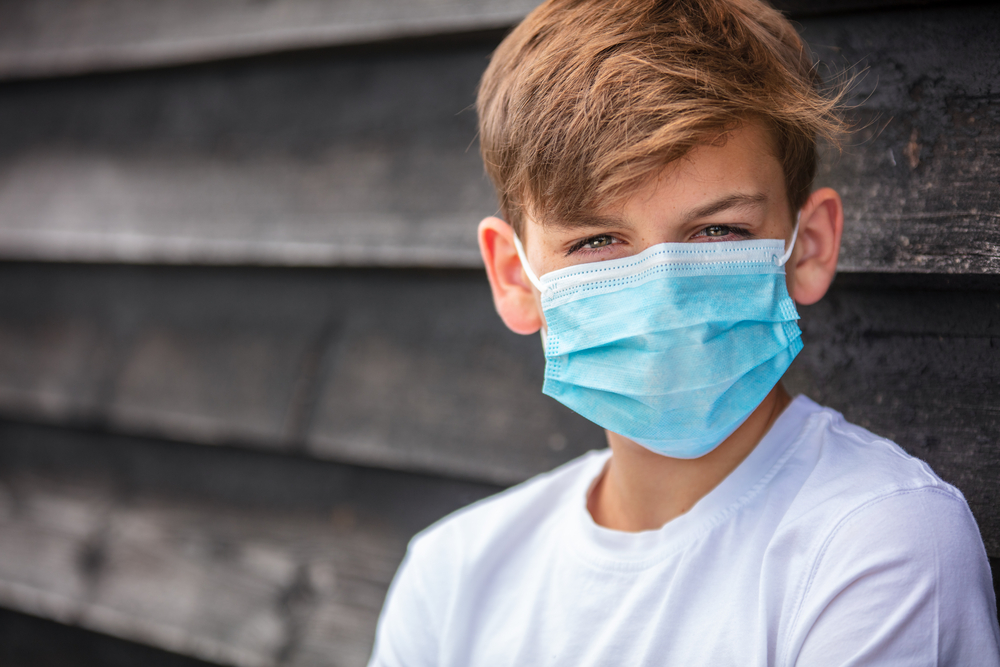
These past few months have been filled with uncertainty for everyone. At Thomas Orthodontics, it’s our top priority to help our patients and their families stay healthy during COVID-19. After all, if there’s one thing to focus on during the pandemic, it’s maintaining your overall health. Because many families aren’t sure when they’ll feel comfortable going back to their dentist, it’s critical to keep teeth and braces as healthy as possible.
Here are eight ways to practice excellent oral care during your time at home.
Why Good Oral Health Is Always Important
Tooth decay in the form of cavities is the most common disease of childhood. Tooth decay is almost always preventable with proper care. Once tooth decay begins, it will continue to progress, and tooth decay can affect anyone regardless of age. Many dentists were not able to see patients at the beginning of the pandemic except for emergencies. As many offices continue to reopen under new guidelines and limited schedules, it may be more challenging to be seen for routine cleanings and exams, so at-home efforts are more critical now than ever before.
Preventing Dental Problems During the Pandemic
There are many great oral care tips you and your family can easily follow at home. Preventing dental problems is straightforward and achievable with a little effort.
Brush Teeth Regularly
Brushing teeth two times a day for a full two minutes each time is what it takes to keep your teeth free of food debris. If you’re unable to brush with a toothpaste containing fluoride after eating, rinsing with water is the best way to clean your teeth. Extra cleaning care should be taken if your child wears aligners, braces, or other orthodontic appliances.
Don’t Forget To Floss
There are a lot of hidden food particles and plaque that a toothbrush can’t reach. To remove these food particles, commit to flossing at least once per day. Flossing helps prevent tooth decay and gum disease, and it’s vital for patients with braces. If your child struggles with traditional floss while wearing braces, a water flosser may make flossing easier.
Avoid Sugar and Junk Food
Diet is one of the main culprits behind tooth decay. The longer and more frequently a child’s teeth are exposed to sugar or other foods that stick in the cracks and crevices of the teeth, the greater their risk of developing cavities. Avoiding sugary foods and junk food is the best way to maintain excellent overall health.
Incorporate a Fluoride Rinse
Rinsing the mouth is a critical piece of oral hygiene that’s commonly overlooked. Rinsing with a fluoride mouthwash helps to remove food particles, fight back against cavity-causing bacteria, and remineralize soft spots in tooth enamel.
Wash Hands Often With Soap and Warm Water
Handwashing with soap is the first level of defense in battling the COVID-19 virus. It removes germs and bacteria on the hands, which is a big deal since we often touch our faces with our hands.
Avoid Touching the Face
Touching your face and touching your mouth should be entirely avoided. Most bacteria and viruses can be transmitted into your body through the nose and mouth. You may be surprised to learn how many times a day you or your child touches their face until you start to take note. Keeping your hands away from the face is a healthy habit you shouldn’t overlook during these vulnerable times.
Don’t Skip Routine Dentist and Orthodontic Appointments
Dental offices and Orthodontic offices are continuing to reopen under new state guidelines and restrictions. Situations vary from state to state; however, offices must follow CDC and OSHA recommendations to ensure that patients and team members stay safe. To learn more about these new procedures and protocols, call your provider’s office before scheduling a visit.
How To Handle Unexpected Orthodontic Emergencies
Most orthodontic appliances will not cause a severe problem if something is broken for a short while. However, a broken brace or wire can be uncomfortable or painful. We encourage you to try and apply orthodontic wax to any damaged areas to help minimize irritation. If there is severe pain, bleeding, or discomfort, please contact our office immediately.
Depending on how long before the broken appliance can be repaired, there could be some loss of progress, which may prolong the treatment timeline. Always follow your food list and restrictions to help minimize the risk of broken brackets or wires. To learn more about the ways Thomas Orthodontics is making our office as safe as possible during COVID-19, contact us today.





